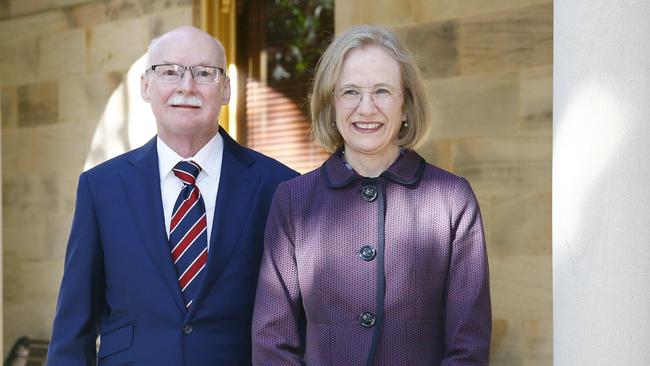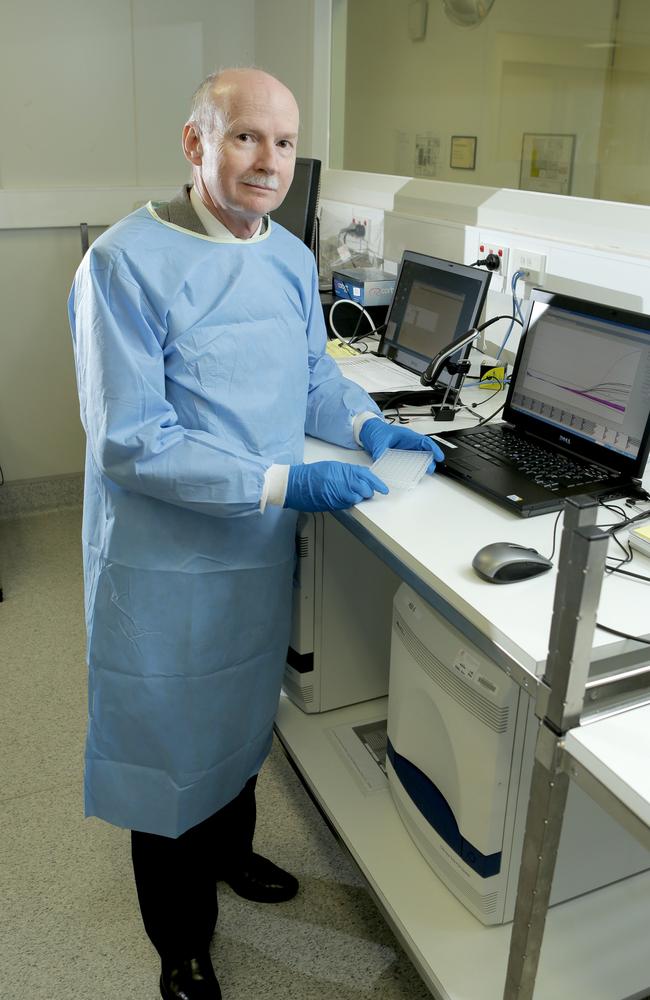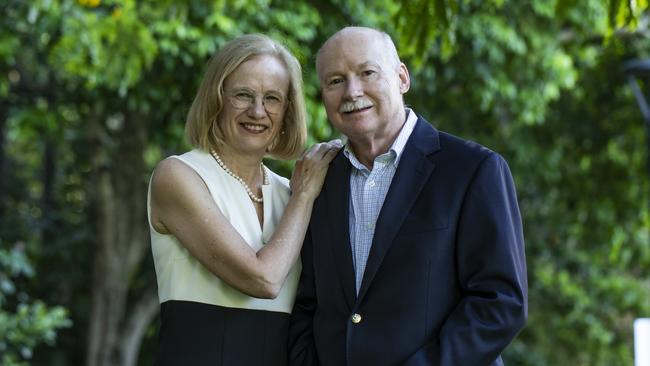Revealed: Professor Graeme Nimmo’s history with drug company Pfizer
The chief health officer’s husband Professor Graeme Nimmo received travel perks and benefits while serving as an adviser to Covid-19 vaccine manufacturer Pfizer, it has been revealed.
QLD News
Don't miss out on the headlines from QLD News. Followed categories will be added to My News.
The husband of chief health officer Dr Jeannette Young has served as an adviser to Covid-19 vaccine manufacturer Pfizer and received travel perks and other benefits from the drug giant.
Discussion about the link has emerged on social media after Dr Young said the AstraZeneca jab should not be given to Under 40s, and only given to Under 60s on medical advice, despite a study finding it had a ‘similar safety profile’ to Pfizer.

Her stance prompted a rebuke from Australia’s deputy chief medical officer Dr Michael Kidd who said southeast Queensland was in the grip of a ‘significant outbreak’.
The Australian Technical Advisory Group on Immunisation this week reaffirmed previous advice that ‘in a large outbreak, the benefits of the COVID-19 vaccine AstraZeneca are greater than the risk of rare side effects (potentially fatal blood clots) for all age groups’.
The Sunday Mail is not suggesting any conflict of interest over Dr Young’s stance or any link to her husband’s work.
Queensland Health says she does not perform work for Covid-19 vaccine manufacturers, travel to conferences or receive speaking fees.
Her husband is respected microbiologist Professor Graeme Nimmo, who was Queensland Health’s State Director of Microbiology before retiring last year.

Up until about a decade ago, Prof Nimmo served on advisory boards for Pfizer and other drug companies Novartis and bioMerieux.
Novartis earlier this year announced a deal to produce the Pfizer-BioNTech vaccine to help meet worldwide demand.
Documents show that Pfizer and Novartis paid Prof Nimmo’s travel and accommodation costs to attend the 2011 Antimicrobial Resistance Summit in Sydney in 2011.
A health source said Prof Nimmo was also believed to have performed work for a company which merged with AstraZeneca.
A Queensland Health spokesman said Dr Young, who was appointed chief health officer in 2005, did not attend the conference with her husband.
“Dr Young does not perform work for drug companies involved in Covid-19 vaccine production. She does not travel to conferences or accept any speaking fees from drug companies involved in Covid-19 vaccine production,” the spokesman said.
“The most significant vaccine work Dr Young has done was working with the University of Queensland and CSIRO on the Hendra vaccine.
“She received no payment or consideration for this work beyond her regular salary.”
It is not uncommon for public servants and academics to have conference attendance costs covered by organisers or sponsors.
Online searches of Queensland Health’s gifts register dating back to 2010 do not show any benefits provided by Pfizer or Novartis to Dr Young.
The Sunday Mail was unable to establish if she had received any benefits from the drug companies before then.
In February, Dr Young said Pfizer and AstraZeneca were ‘both fantastic vaccines’.
In an interview with The Courier-Mail’s Qweekend magazine last year, Dr Young said Prof Nimmo’s advice had been ‘critical’ during the pandemic.
“He’s my sounding board and so often, he’d go: ‘Oh, I’d just have a rethink about that one if I was you’. He’s always very, very wise. He’s exceptional. He can tell me things, genuinely, and say: ‘You’ve not got that right’,” she said.

“He is the perfect person to be married to when you’ve got a pandemic, or you’re a chief health officer who doesn’t know anything about pathology and infectious diseases. It’s been a great team, purely by accident.”
Dr Young this week clarified her position on vaccine suitability, saying ATAGI had changed its advice from not recommending people under 60 have the AstraZeneca jab to saying they could if they lived in an outbreak area and had medical advice.
“The ATAGI advice is exceptionally clear and I have always followed it,” she said.
“If you are under 60 years of age, the advice is very clear that you should go and talk to your GP and work through with your GP – if you aren’t able to access Pfizer because you’re not in the priority group – whether you should be accessing AstraZeneca. It is a personal choice and one that needs to be made with your GP.





